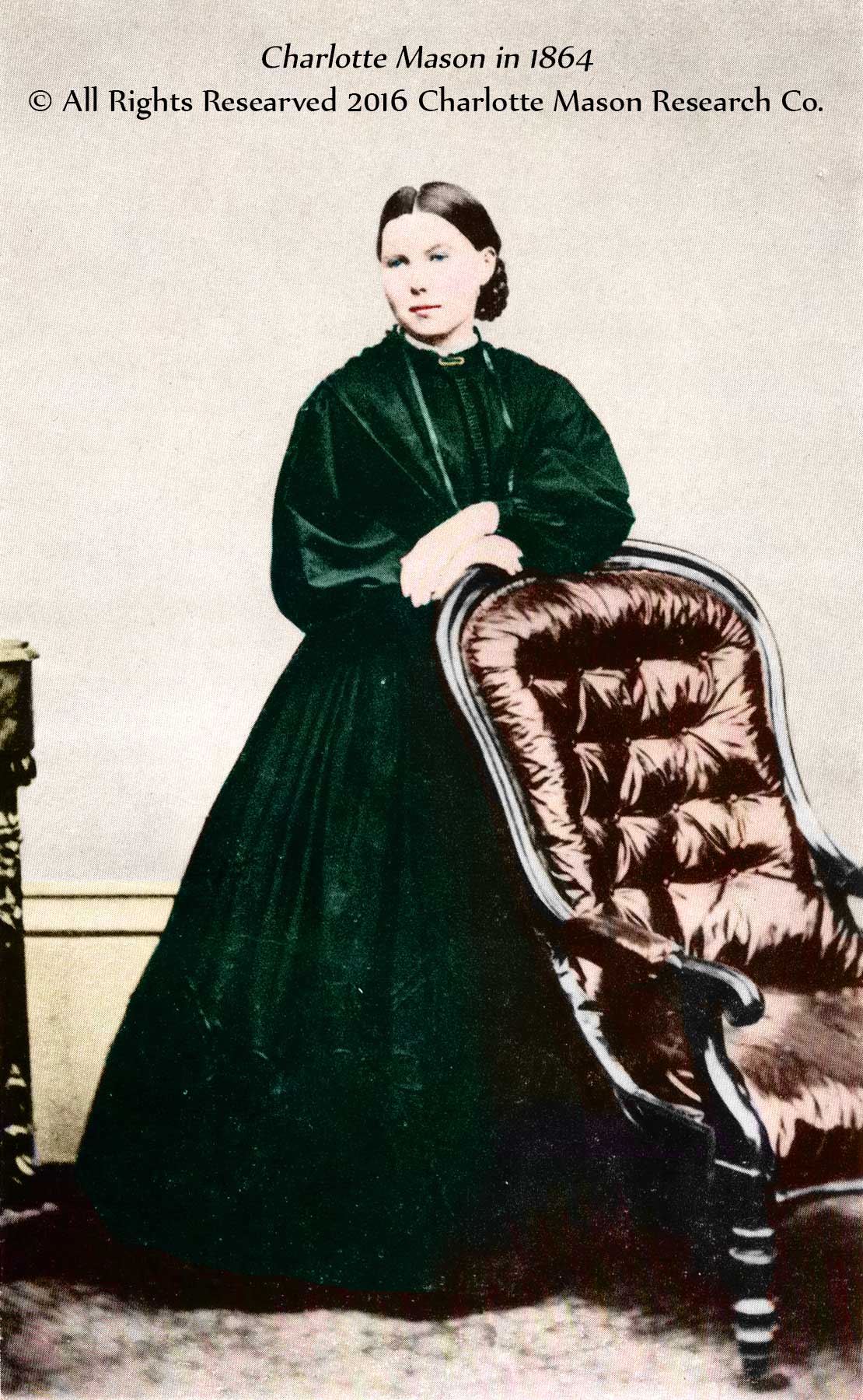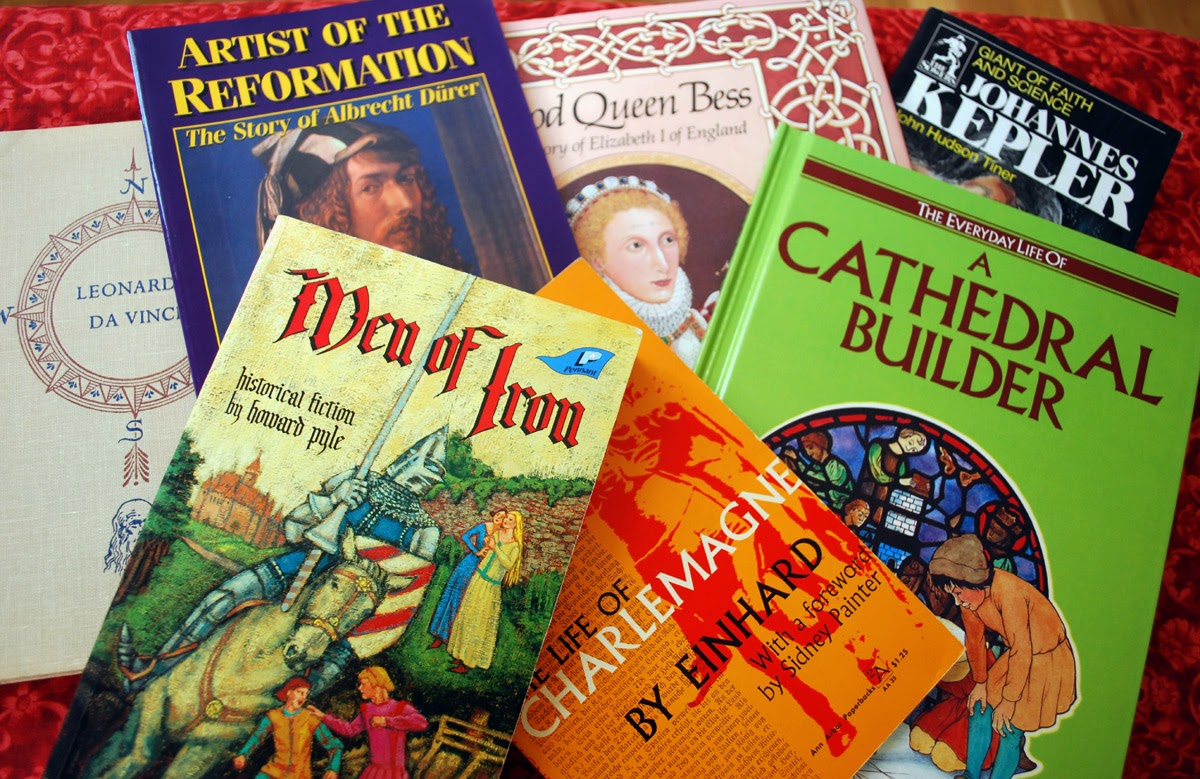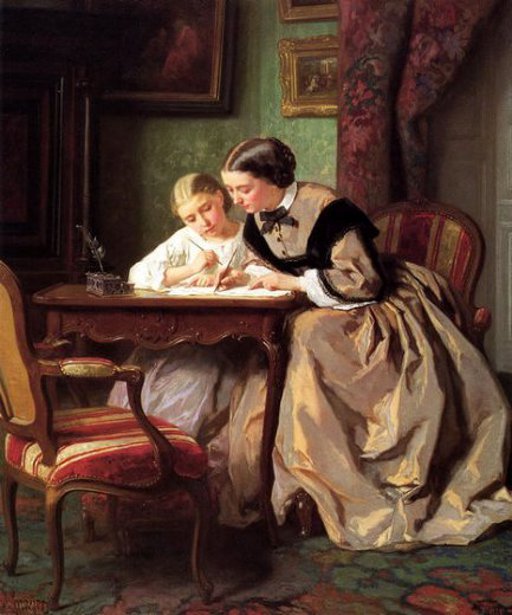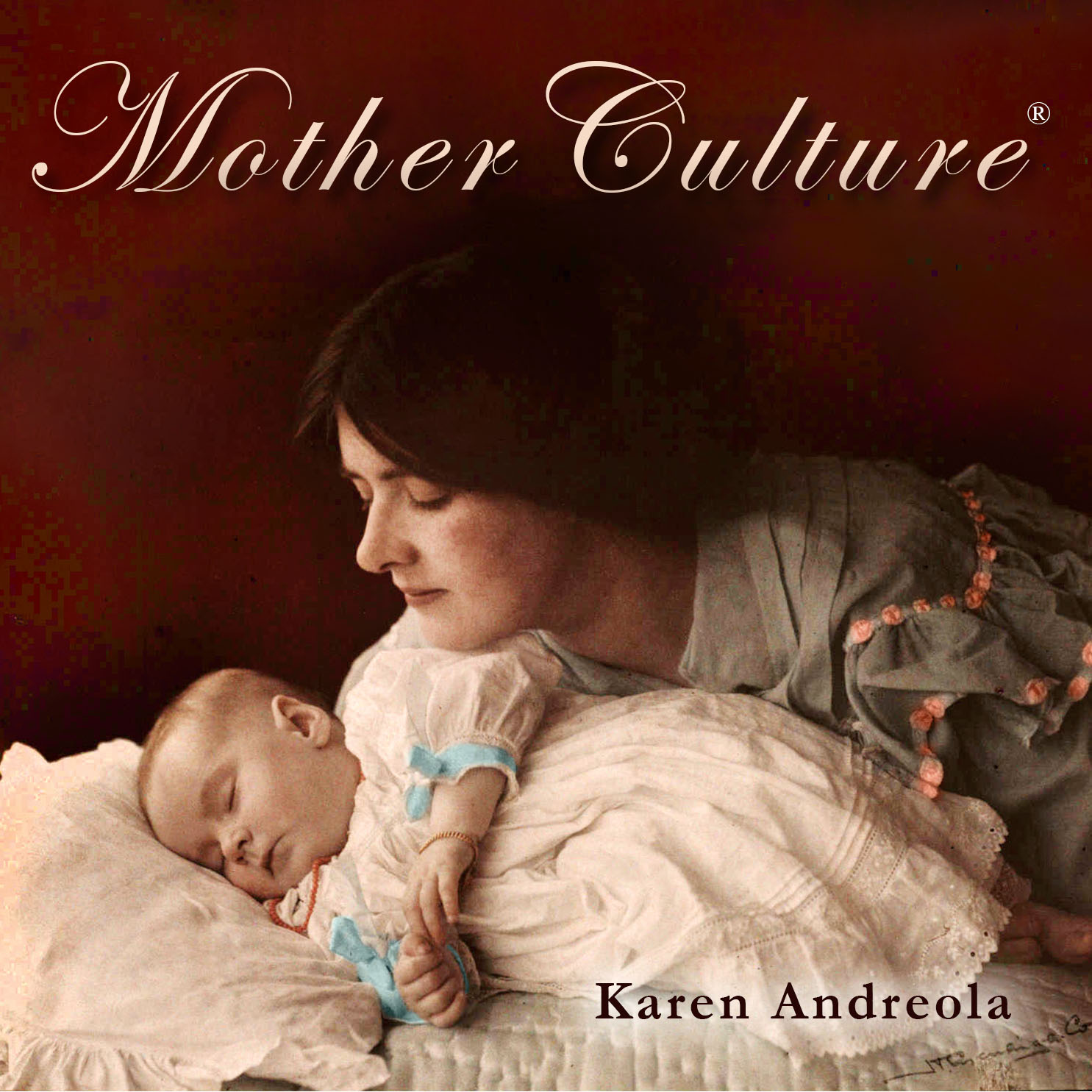
Charlotte Mason
A Peek at a Charlotte Mason Education
by Karen Andreola
The teaching method of Christian British educator, Miss Charlotte Mason (1842-1923) makes a good fit in today’s homeschool.
In her writings Miss Mason insists upon using “living books,” as schoolbooks. These enliven the mind and secure interest. Classroom textbooks, compiled by a committee, tend to be crammed with dry facts and information. Living books, by contrast, are often written by one author who enthusiastically shares his favorite subject with us.
With living books children gain knowledge through their own effort. They dig out the facts and information clothed in literary language, expressing what they’ve learned by narrating it in their own words (composing orally or in writing). Their thinking is personal, follows a train of thought, and isn’t stunted by a page of multiple-choice.

Teachers needn’t be trained in giving lectures. Children educate themselves by narrating from the well-chosen words of authors. Too much explaining by a teacher elicits boredom. True education is self-education.
No bells announce the end of hour-long class periods. Children are free to move promptly onto the next lesson. When drills and skills are kept short children develop the power of attention. Dawdling is discouraged. Students are encouraged to give their best effort. Education is a discipline. This means establishing good and helpful habits, built one action at a time, one day at a time.
Education is an atmosphere. With living books children are motivated by a love of knowledge rather than artificial stimulants such as prizes (stickers, candy, money), competition, and grades. They retained their inborn curiosity. Cramming for tests is avoided. Examinations require the child to narrate what was read during the semester.
Inspiring the love of knowledge in children depends of the presentation of ideas. Ideas are what the mind feeds on. Miss Mason served children a wide curriculum of subjects. She says, “Varied human reading as well as the appreciation of the humanities is not a luxury, a tid-bit, to be given to children now and then, but their very bread of life.” Education is a life.

Miss Mason places an emphasis on being outdoors to observe nature. Students keep a Nature Notebook. They record their “finds” in drawings, adding poems and mottoes.
Art appreciation and music appreciation are subjects that contribute to the child’s rich cultural heritage.
After-hours homework is withheld. Children apply their minds at the time of morning lessons. Afternoons provide recreation. For children this means running, climbing, yelling, all out of doors. Handicrafts, chores, life skills, practicing an instrument, and play, are their homework.
These topics and more are explained in my book, A Charlotte Mason Companion – Personal Reflections of the Gentle Art of Learning.
